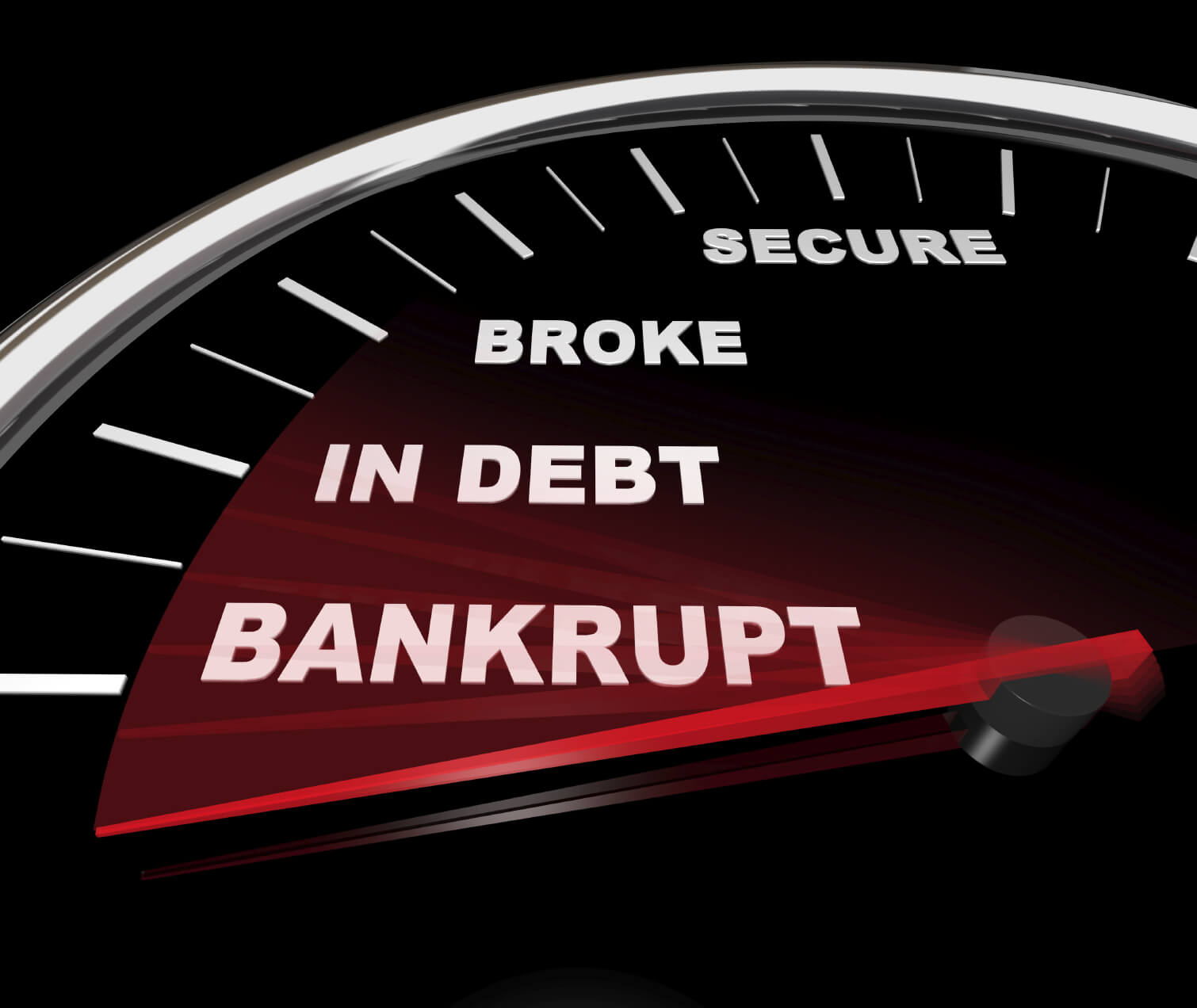While bankruptcy is not a pleasant topic to discuss, it is prudent to at least understand the process, implications, and ultimately the benefits of utilizing a business or personal bankruptcy for distressed businesses. Franchisees facing extreme economic hardship should take careful note of the benefits and costs to a business bankruptcy and understand the terminology, process, and potential outcomes for any potential bankruptcy filings.
First, let’s explore the reasons behind filing bankruptcy. Bankruptcy is available to businesses and individuals to encourage and invite innovation in business while also providing a fresh start for the honest but unfortunate debtor. Bankruptcy should be seen as a relief option for the distressed business or business owner to end their unsustainable debt burdens in a controlled and fair manner for both the debtor and creditors. Major reasons why business owners finally do file for bankruptcy is the unsustainability of the business model and revenues versus expenses, liquidity issues, or even unresolvable disputes with the franchisor.

Bankruptcy in the event of serious disputes with the franchisor can be utilized to give the franchisee some additional time for handling the dispute or any applicable cure periods. The bankruptcy filing will impose certain limitations on your creditors (more on that later) which can allow you to continue operations without worrying about liquidity issues, contractual defaults, or even franchisor step-in rights during the time of the bankruptcy case. Ideally, a franchisee filing bankruptcy due to economic conditions will be able to exit the franchise system while still retaining some assets of the business, usually only the salvage assets which may not be worth much but could be a debt free basis for your next venture.
Benefits of Bankruptcy
Next, we should detail some of the benefits to filing bankruptcy when your business is distressed beyond limits of repair. The primary benefit to the franchisee is the automatic stay. The automatic stay stops all acts and proceedings against the debtor and their property. This stay is effective nationwide and even forbids informal collections actions against the debtor, such as notice letters, default letters, contract termination, levying late fees, and others. This automatic stay is triggered immediately upon filing.
The automatic stay preventing collections and pursuing claims by creditors is designed to create an orderly bankruptcy process (preventing a rush to the courthouse by creditors to jump priority) and a fair adjudication of the assets and debts. This can be a major tool in the franchisee-debtors bag to deploy when other options have failed and can be significant leverage over the franchisor in certain circumstances.
Bankruptcy will also allow a debtor to have candid discussions with the creditors about the financial situation of the business and if there are potential repayment or restructuring options available. After a bankruptcy filing, creditors will often be more willing to negotiate given the possibility of receiving only a fraction of their credit. Bringing all creditors to the table can be very helpful in determining debt priority and available options.
The Franchise Agreement in Bankruptcy
How the franchise agreement will be treated under a bankruptcy filing will be determined by three factors: the franchise agreement itself, the particular state bankruptcy law, and federal bankruptcy law or court precedent. The franchise agreement itself will be the first hurdle to review and overcome in a franchise bankruptcy. A franchise agreement that exists before the bankruptcy filing will be considered a part of the bankruptcy estate and will be subject to the automatic stay. Thus if you have not been terminated before the bankruptcy filing then the franchise agreement generally be considered valid and part of the bankruptcy estate.
Often, the franchise agreement will state that upon an action of filing the franchise agreement is automatically terminated. Whether this will actually be case depends on the exact language of the franchise agreement about bankruptcy filings and also certain state laws which may limit automatic franchise terminations. If an applicable state law requires notice and waiting periods for all franchise terminations, then a bankruptcy filing may not terminate the franchise agreement merely by the filing. Although if your state does not have these franchisee protections and the agreement has language clearly stating the agreement is terminated on filing, then the bankruptcy filing will not revive your franchise rights. Understanding the terms of your agreement and the bankruptcy options require a keen eye and deep legal knowledge, it is strongly recommended to retain a franchise and/or bankruptcy attorney to explore these options before making a decision to file or not.
As the bankruptcy case proceeds the franchisee debtor will have the option to either accept or reject the franchise agreement, provided that it was not validly terminated before filing. Accepting the franchise agreement means that the franchisee has elected to honor the contractual terms and continue to be a franchisee of the system. Rejecting the franchise agreement means just that, that the contract will be terminated and debts wiped by the bankruptcy process unless assets are available for liquidation and remitted to the creditors. Generally the franchisor will only have an unsecured claim to the bankruptcy estate though this can vary from franchise agreement to franchise agreement. This rejection allows the franchisee to exit the franchise system without the franchisor compelling performance.
Downsides to Bankruptcy
The downsides to a bankruptcy filing are more well known to small business owners and the general public. The biggest downside to the typical small business owner is the credit hit for a bankruptcy filing. For any bankruptcy filing a business and individual will likely suffer a major drop in their credit report which affects all future credit applications and even apartment leasing and job offers unfortunately. This is a primary reason that bankruptcy filings should be carefully considered before filing. The mere act of filing will have consequences on your credit history for up to seven years.
Another oft-forgotten downside to a bankruptcy filing is that generally the covenants against competition in a franchise agreement will not be discharged. This means that you will still be expected to not compete with the franchise system in similar business or industry. Although some former franchisees could not be paid to operate a competing business in the same space as their former franchisor for others, particularly tradesmen or specialists, this could be a major blow to post franchise prosperity. This should be another major consideration before filing for bankruptcy.
If you are considering a bankruptcy filing as a franchisee and need assistance to consider your options as a franchisee, call Reidel Law Firm today to get us on your side to help resolve the issue and protect your business investment. Reach us by the email button below or by calling us at +1(832)510-3292.







